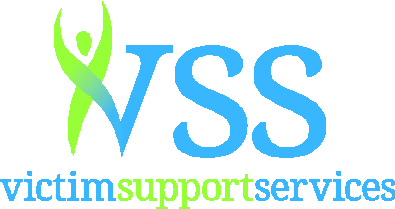Frequently Asked Questions
Victim Support Services provides advocacy services, courtroom support, medical advocacy, information, and referrals.
All of our advocacy services are free.
Yes, there is no requirement that you report to police to obtain our services.
Your immigration status does not prevent you from receiving our services.
Our direct services are located in Skagit, Snohomish, and Whatcom Counties in Washington State. If you live outside of our service area we can make a referral to an appropriate agency in your area. You can also use the National Center for Victims of Crime’s Connect Directory to locate assistance in your area.
We refer victims of domestic violence and sexual assault to local agencies that specialize in this service.
We utilize the AT&T Language line for callers who speak a language other than English. If you are meeting with an advocate in person and need an interpreter, one will be provided to you.
Washington State has several laws which protect crime victims’ rights.
We offer a facilitated peer support group for survivors of homicide victims. Contact your local advocate for more information.
You may call any of the Victim Support Services Advocates directly to schedule an appointment. If you do not know the name of the advocate in your area please call 888-288-9221 and we will be happy to assist you in connecting with them. All services are offered virtually with limited in-person assistance depending on the help requested and staff availability.
The Crime Victim Compensation Program through Washington State Department of Labor and Industries can help victims of crime with medical bills and funeral expenses. An advocate can help you determine if you qualify for this or other programs, and can help you with the application process.
Crime Victims Compensation (CVC) is a program through the Department of Labor and Industries. Victims of violent crime can fill out an application to see if they qualify for assistance. An advocate can help you complete the paperwork.
You have the right to attend every court hearing where the defendant is present, but it is not necessary that you do so. If you are a witness to the crime the prosecutor’s office may ask you to testify if the case goes to trial. Advocates can provide court support with you or on your behalf and take notes for you. It is a very personal decision of how much, when and if you would like to go to court.
An advocate from VSS will make every attempt to attend the court hearings on your behalf. Advocates can attend hearings virtually and on occasion in-person depending on the type of hearing. If the advocate is unavailable, communication with the Victim/Witness Advocate at the Prosecutors office can supply you with the information on what was discussed at the court hearing.
A Victim Impact Statement is a written or oral statement presented to the court at the defendant’s sentencing. Victims or survivors have a legal right to inform the judge about how the crime has affected their lives and can ask that a defendant receive a particular sentence.
An advocate can facilitate your interactions with the media, or help you request privacy if you wish. It is important to first speak with the law enforcement agency that is investigating the crime so that what you report does not compromise the investigation.
You may search for an offender and sign up for victim notification services through WA SAVIN/VineLink which is a free and confidential service. You can sign up to be notified by phone or email.
Volunteers are vital to the work we do. We invite you to explore the ways in which your talents will be utilized best. Contact our Director of Hotline & Volunteer Services, MaryKate Lesar, for more information.
We are always happy to share our services with the community. You can contact our Programs Administrator, Leslie McPherson, to schedule a presentation.
